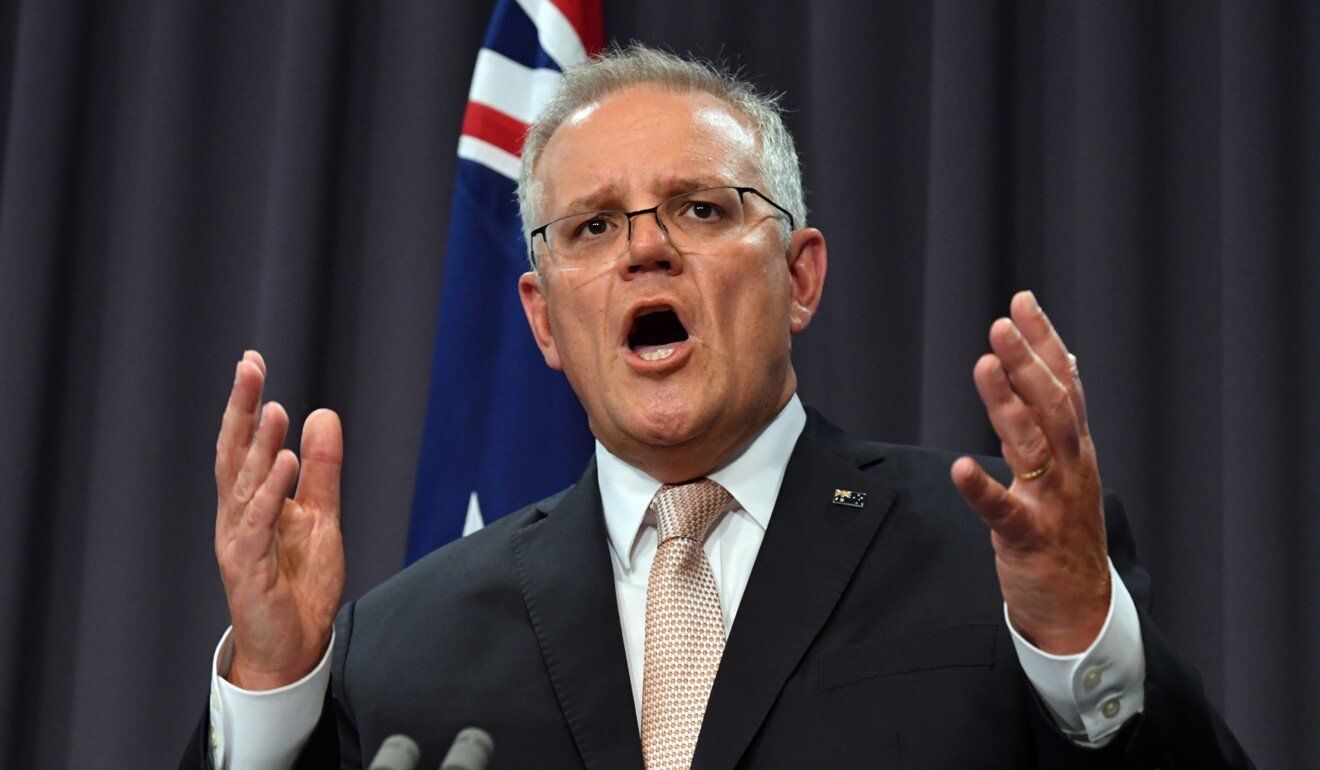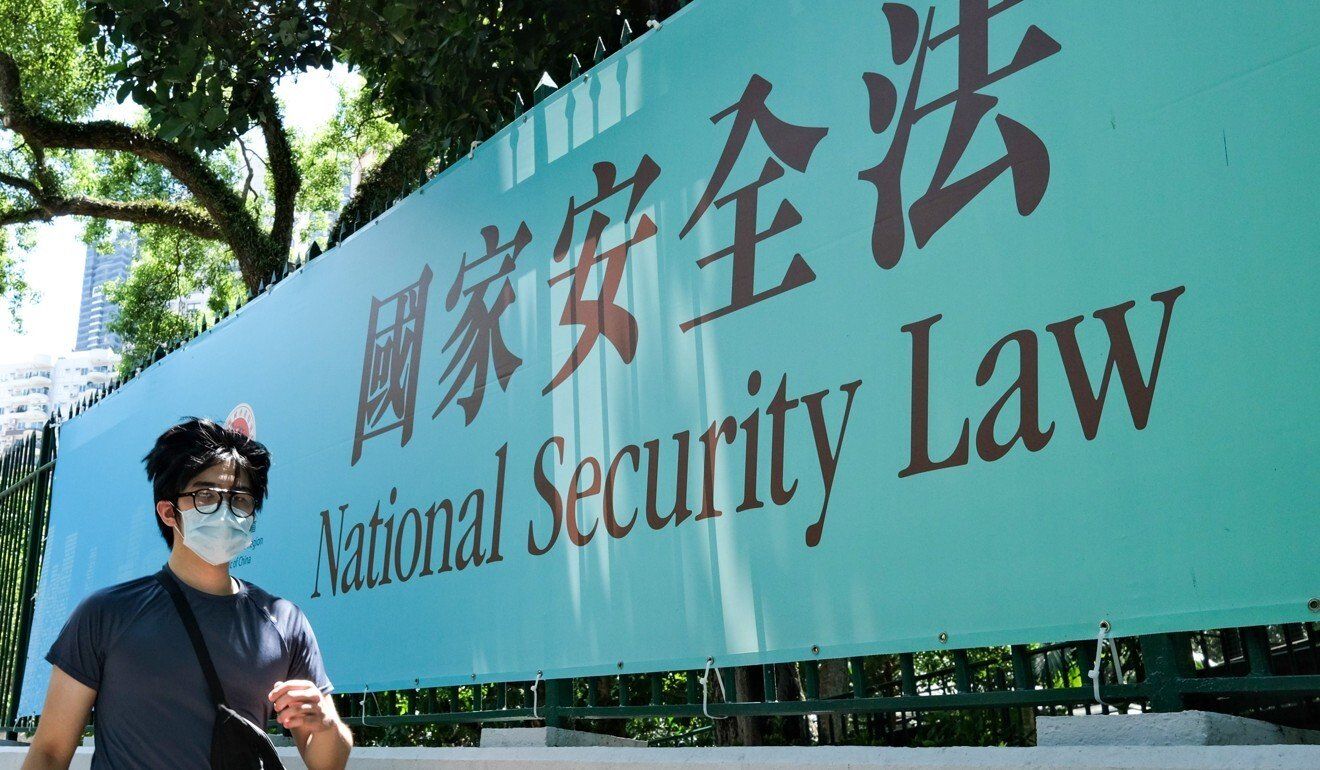Hong Kong News

Australia opens door to Hongkongers with permanent residency scheme
Hongkongers who have studied or worked in Australia will be allowed to apply for permanent residency from as early as March 5 next year after the country revealed details of a promised “safe haven”.
Hong Kong or British National (Overseas) passport holders and their family members can get residency in Australia in three years after meeting certain requirements, under amendments to migration regulations dated October 28.
Immigration consultants and concern groups described the eligibility threshold as “low”.
In what Australia earlier called a safe-haven offer, Prime Minister Scott Morrison promised a pathway to permanent residency shortly after Beijing imposed the national security law on Hong Kong in June last year. The legislation outlaws secession, subversion of state power, terrorism and collusion with foreign forces.
 Australian Prime Minister Scott Morrison.
Australian Prime Minister Scott Morrison.
Britain in July last year offered a pathway to citizenship while Canada put in place a similar scheme in November.
Various options are available under Australia’s Migration Legislation Amendment (Hong Kong) Regulations.
Hong Kong or BN(O) passport holders who have studied or worked there for at least four years, and meet health, character and security requirements, are eligible to apply for a skilled independent visa.
The primary applicant must pay A$4,115 (US$3,095) as a first instalment and A$4,885 for the second before a visa is granted. It will cost A$2,055 for an extra adult applicant and A$1,030 for one aged below 18 years. So the cost for a family of two adults and a child works out at about HK$78,000 (US$10,000).
The charges are simpler than for the British scheme, under which BN(O) status holders are charged visa fees plus health insurance with prices varying according to duration of coverage. Still, 64,900 Hongkongers had applied for British citizenship as of August.
Another stream offered by the Australian government is through a permanent residence (skilled regional) visa, for those who have worked or studied in a regional area for three years and meet health, character and security requirements.
Australia said it had provided more streamlined pathways to permanent residency for both Hong Kong and BN(O) passport holders compared with citizens of other countries, but the differential treatment would not amount to prohibited discrimination on grounds of nationality.
“That is because it addresses the public, social and international concern with the imposition of the national security law in Hong Kong, whilst maximising the benefits of skilled and temporary graduate entrants to the Australian economy by attracting highly skilled Hong Kong and BN(O) passport holders who are looking to leave Hong Kong or remain in Australia following the imposition of the national security law,” the paper said.
Immigration consultant Benny Cheung Ka-hei said the Australian scheme was similar to Canada’s and aimed to attract young talent and skilled workers as the population was ageing.
“It is obvious that the country hopes to roll out a more competitive immigration policy to attract Hongkongers,” said Cheung, director of Goldmax Immigration Consulting. “This move will also benefit Australia itself as it takes advantage of the confidence crisis in Hong Kong to attract high-quality young talent to fill the development gap.”
However, he said the BN(O) visa scheme was the most attractive.
“As long as you hold a BN(O) passport, you are eligible,” he said. “You don’t need to study a degree course there and you can also bring along family members such as parents and children.”
 The national security law came into force last year.
The national security law came into force last year.
Jane Poon, spokeswoman of Australia-Hong Kong Link, a concern group supporting the city’s protest movement, said the easier access to permanent residency was good news for those seeking to emigrate.
“The eligibility threshold has become very low. It’s almost unconditional,” she said. “As long as you have obtained a student visa, rest assured you can stay in Australia for as long as you like. Your student visa also entitles you to bring along your family members to Australia.”
Wong Mei-mi, 34, a Hongkonger who worked as a welfare services officer before moving to Melbourne to study for a diploma course in hospitality, said she was delighted to hear about the scheme.
Having taken part in protests in Hong Kong, she was worried about returning to her home city.
“Now this is good news to me. I will definitely apply for permanent residency here,” she said. “I can relax and plan my future here in Australia without worrying over being forced to return to Hong Kong.”











